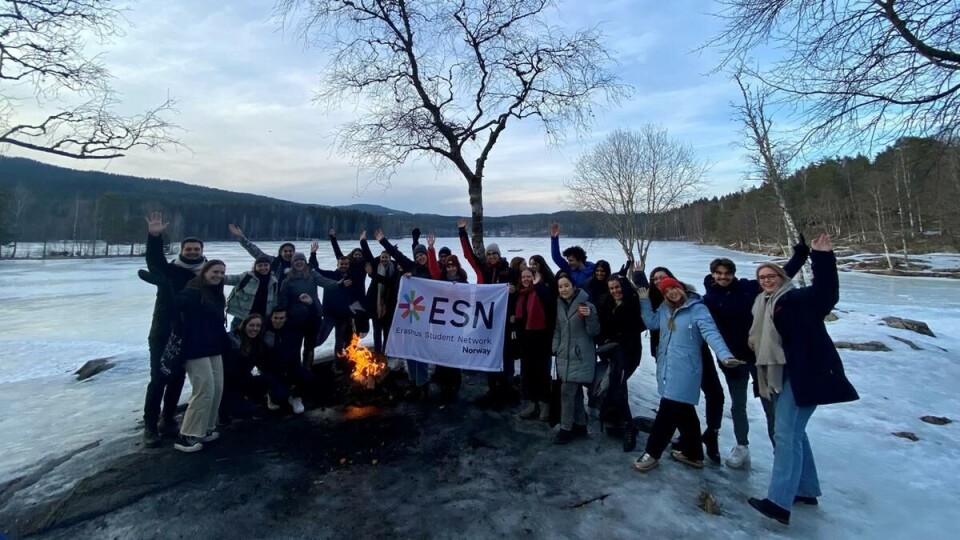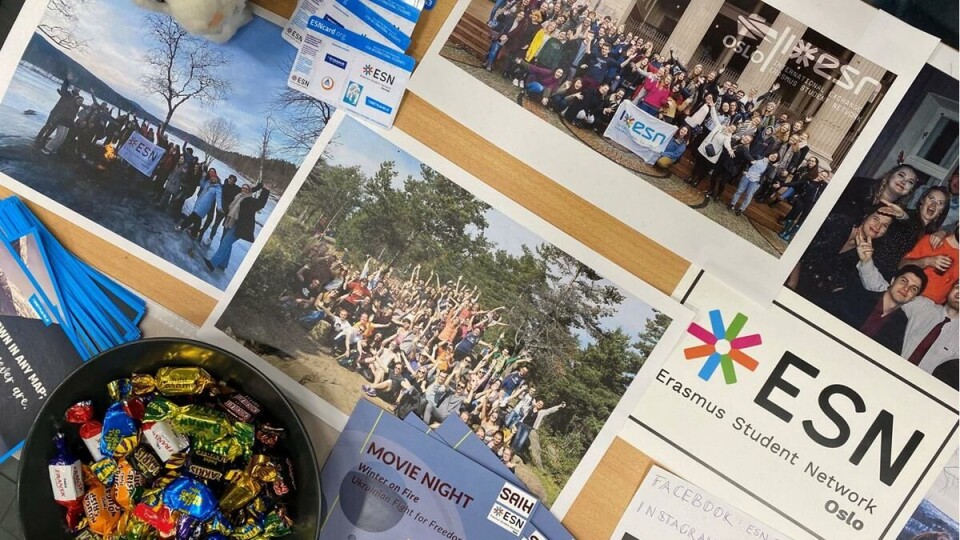Opening Doors and Networking for Life:

The Erasmus Student Network
Navigating through student-life can be challenging as it is, even in a familiar setting.
Navigating through student-life can be challenging as it is, even in a familiar setting. Exchange students are in double trouble given they have to overcome everyday-hurdles in a new city, where they do not know many or, in the worst case, any people; where the customs are different; and where the language possibly is not their mother tongue. Luckily, there are organizations that can help with at least the first of the mentioned aspects. One of those organizations supporting international students in finding their way in their temporary new home is ¬the Erasmus Student Network.
As long as you have a love for the international way of life, you are welcome in ESN, no matter if you have, are or plan to go on exchange. You are also welcome if you cannot go on exchange or if you’re a degree international student. In short: everyone is welcome!
Since 1987, the Erasmus Student program has given over 6 million students from all over Europe the opportunity to break out of their well-known environment at home and experience student life abroad at one of the over 5.000 higher education institutions in the 37 participating countries. Two years after the student mobility program was set up, a working-group of students that were the first participants of the Erasmus program evaluated their experiences. This meeting marks the starting point for [the Erasmus Student Network (ESN)](ii) and the ever-growing number of regional sections. The goal of this first batch of Erasmus students was to help other students arriving at their local university and be peers to the newly arrived. Lise Benette Hovd, president of the national board of ESN Norway, outlines ESN as “the facilitator of inclusion between the native students and those currently on exchange“. ESN aims at improving the experience of every student.

Often times, students are hesitant to approach ESN when they are not on Erasmus exchange. Locals or students on international program are misguided by the name of the organization. However, as Hovd states, “as long as you have a love for the international way of life, you are welcome in ESN, no matter if you have, are or plan to go on exchange. You are also welcome if you cannot go on exchange or if you’re a degree international student. In short: everyone is welcome!”. In Norway the capital Oslo, of course, is home to one division. Relatively close to Oslo are Ås and Kristiansand with their own ESN local section. Exchange students further up north can contact ESN Stavanger, Bergen, Molde, Trondheim or Tromsø.
What all of the 530 local sections of the non-profit organization have in common is their guiding mission. ESN aims to represent international students and to provide them with opportunities for cultural understanding and self-development. Hovd describes her personal connection with ESN this way: “ESN nourishes my love for the international way of life as well as giving me an opportunity to grow and develop into a better version of me“. This is to be achieved under the principle of “Students Helping Students”. Easy when there are 15.000 ESN members working for the organization all across Europe.
Each and everyone who works for ESN in whatever position does so on a voluntary basis. Some may see it just as a great opportunity to spice up their CV’s. After all, Europe’s biggest student organization will hold many doors open for its members – be it by participating as active member or taking a position in the local division’s board. Many, though, remain members even after having finished their Erasmus semester abroad. It is excellent for getting in contact with other international students and turning work-colleagues into life-long friends.

But not only members working in the boards of ESN and their divisions can look forward to expanding their professional network and making new friends from all over the world. To facilitate the process of getting to know fellow (exchange) students, ESN generally aims at connecting foreign students spending some time abroad in the same city. To cater this aim, divisions organize an array of events throughout the academic year, where all students can connect – no matter if they are locals, Erasmus program students or international students. One ESN Oslo member says: “While I did have a buddy group in my first semester, I extended my Erasmus stay, and then I did not have a buddy group and all people already left after one semester. Also, while it’s definitely possible to meet people in classes, many people are already in the class as a part of a group, it's not really a good option [to get to know new people].” ESN offered this member the possibility to meet “nice people and people in a similar position as me, some internationals, but also some Norwegians” – you know what achievement this is when you’re a foreigner in Norway.
But what would student life be without a proper party with friends every now and then? As the COVID-restrictions have been loosened or even lifted in some countries, get-togethers are finally possible again. Active members of a local division mostly meet once a week, where they discuss upcoming events they want to organize. This gives them the freedom to have a say in what their ESN-experience should be about. “I can participate in events and can have my own initiative to do things I personally would like to attend”, says an ESN member, who joined Oslo’s local division just this semester but is already sucked into the whole experience.

In Norway, campfires and activities in the snow such as ice-skating are all the rage. In the warmer months of the year, picnics on the beach or hikes in the mountains are organized. The events are not limited to single local divisions, though. ESN Norway organizes trips for all (exchange) students from all over Norway. Students in the northern countries of Sweden, Denmark and Norway could this year once again participate in the so-called ESN Sea Battle: a ship-cruise brought them from Stockholm to Riga. The ship itself held something to do for everyone: it was equipped with two dance-floors and activities such as karaoke, treasure hunts, salsa lessons and many more were sure to cater everyone’s interests.
All fun aside: Who’s gonna pay for it all, you may ask. The ship-cruise was to be paid by the participants themselves, albeit to a low price in comparison to other cruises with definitely less activities and fun. The other activities of the local sections are mainly financed through grants by the local universities, enabling them to organize the events that bond together the students and build a sense of togetherness on and off the campus of the university.

There is also [the ESN Card](aa), which the members have to purchase for a minimal fee (in Norway it is 100kr for a whole year). This card comes with an endless number of discounts to be applied all over Europe. Wanting to go visit the family back home for the weekend? With the ESN Card the luggage on a Ryanair flight is free and Flixbus, too, gives a discount. Going on a city trip with friends from your exchange city? ESN Card holders can get discounts up to 25% off the normal price in partner hostels – from big ones like hostelworld to local hostel heroes. For a laid-back read, the Economist comes in 10% cheaper if you have the ESN Card. Activities like jump labs and pub nights also come in at a lower price when presenting the ESN Card. The bottom line: yes, one has to pay a small amount for the ESN Card. At the same time, it is a ticket to almost unlimited discounts all over Europe.
Also, since the ESN Network operates all over the continent, if a member changes their location from one city to another, the ESN family will be there for them to help with settling in, creating new friendships or developing in the professional context. ESN Norway’s president wraps it up: "Either if it’s friendships or skills development, we have plenty of doors open to you!"
































